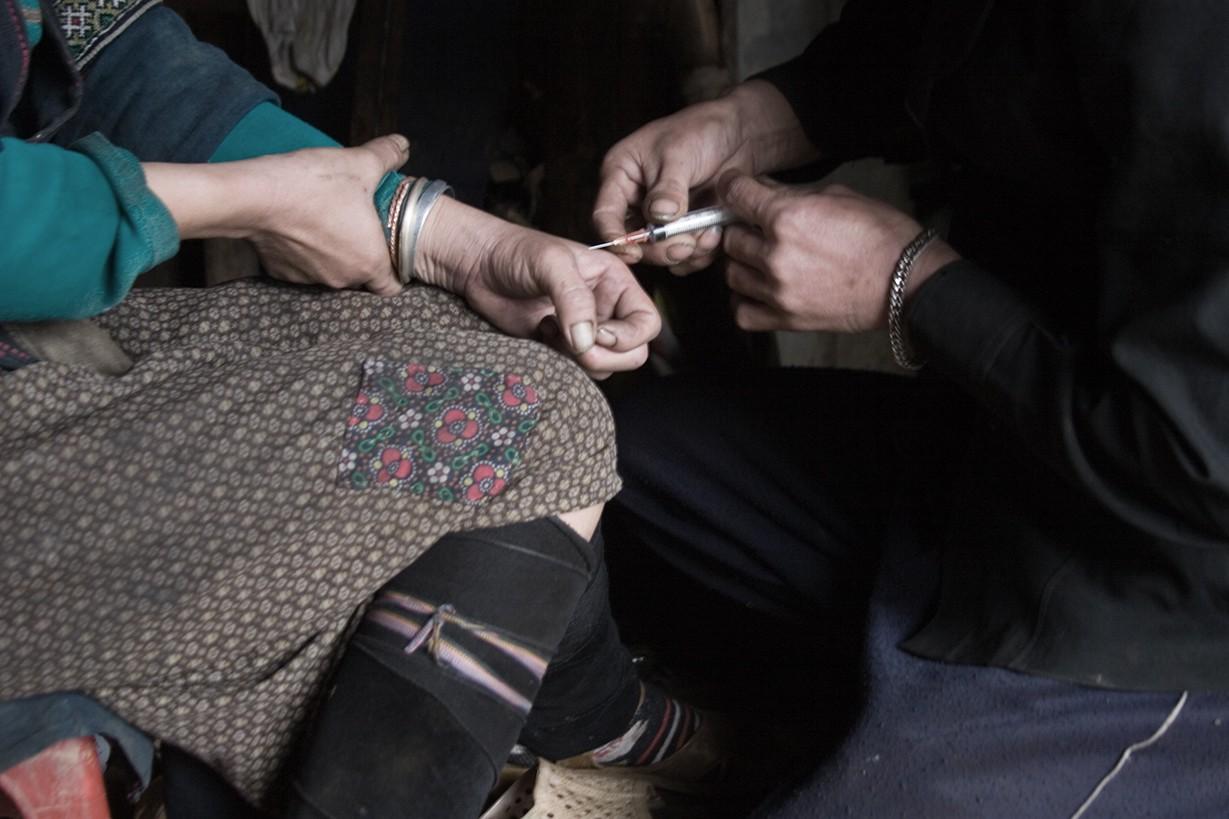Indiana prosecutors want to incarcerate the opioid crisis away
For years, Indiana has been at the center of the national conversation about opioid addiction, which has ravaged the state since the late 1990s. Between 1999 and 2014, the number of drug overdoses skyrocketed 500 percent. There was also a 60 percent increase in emergency visits for non-fatal overdoses between 2011 and 2015. By and large, the medical community […]

For years, Indiana has been at the center of the national conversation about opioid addiction, which has ravaged the state since the late 1990s. Between 1999 and 2014, the number of drug overdoses skyrocketed 500 percent. There was also a 60 percent increase in emergency visits for non-fatal overdoses between 2011 and 2015. By and large, the medical community argues that treatment is the best solution to the growing problem, and legislators recently introduced a slate of bills to approach opioid use as a public health matter. In May, Governor Eric Holcomb’s Indiana Drug Prevention, Treatment and Enforcement Task Force revealed a multi-pronged “Preliminary Action Plan” to tackle the crisis via treatment, strategic law enforcement, and “community-based collaborations.”
But there is one group that thinks the medical approach is inadequate: prosecutors who are hellbent on using the criminal justice system to clamp down on the illicit drugs. On behalf of prosecutors statewide, Association of Indiana Prosecuting Attorneys, Inc. (AIPA) President Patricia Baldwin recently argued that “[p]enalties for drug possession and dealing are too low” and that the task force’s comprehensive plan will flop “without a comparable and equivalent improvement on the enforcement side.”
Last week, Baldwin penned a statement calling for a more drastic law enforcement approach to solving the opioid crisis and slammed legislators’ decision to reform Indiana’s criminal code in 2014. One of the primary objectives of altering the code was to cut the number of offenders in state prisons and encourage treatment for low and medium-level offenders. Penalties were therefore reduced for drug possession and dealing, to the dismay of law enforcement. Now, Baldwin and her colleagues say the changes curb their ability to address rampant opioid use and believe the task force’s proposal is doomed to fail without their help.
“It is a criminal offense to possess or deliver controlled substances outside of the legitimate medical processes. The aim of the criminal justice system in this area is to discourage participation in the illicit drug industry,” Baldwin wrote. “Since 2014, law enforcement has suffered from a weakened ability to accomplish these two important parts of the equation — holding dealers accountable and encouraging users to get help.” She added that enforcement is one way prosecutors “encourage rehabilitation.”
As the Indiana Lawyer noted, Baldwin also linked the new criminal code to both an increase in murders in two Indiana cities and an uptick in child abuse cases — without providing any evidence to prove causation. “If we excuse or enable an addict to seek opiates through the illicit drug trade, we endorse, then, all of the negative consequences associated with that industry,” Baldwin said. “The less severe the consequences for possession of drugs, the less likely addicts will take corrective action. A robust enforcement effort is absolutely necessary to a functional prevention and treatment effort.”
But the AIPA president also ignored a major historical fact: locking people up for drug crimes doesn’t work.
The War on Drugs was a massive failure that didn’t end drug use or offenses related to the drug trade, but instead led to the criminalization and mass incarceration of poor black men people. Incarcerating opioid users, specifically, has proven ineffective. Not only are they dying in jails but they are ill-equipped to deal with withdrawal once they’re released. Some correctional facilities are devising treatment schemes to better assist opioid users, but such plans are few and far between.
Contrary to Baldwin’s statement, the Preliminary Action Plan proposed in May expands mechanisms for law enforcement to tackle the opioid crisis. It creates new crime teams to concentrate on drug trafficking, enhances surveillance, and encourages agency-wide collaboration to weed out suppliers. In other words, police and prosecutors still have a crucial role to play in the fight against a rapidly-increasing problem.
At its core, Baldwin’s argument represents an outdated way of thinking that prosecutors won’t let go of: that drug use is a vice and must be punished. But this tough-on-crime position won’t solve Indiana’s opioid emergency. Based on history, this stance will only add fuel to the fire.
